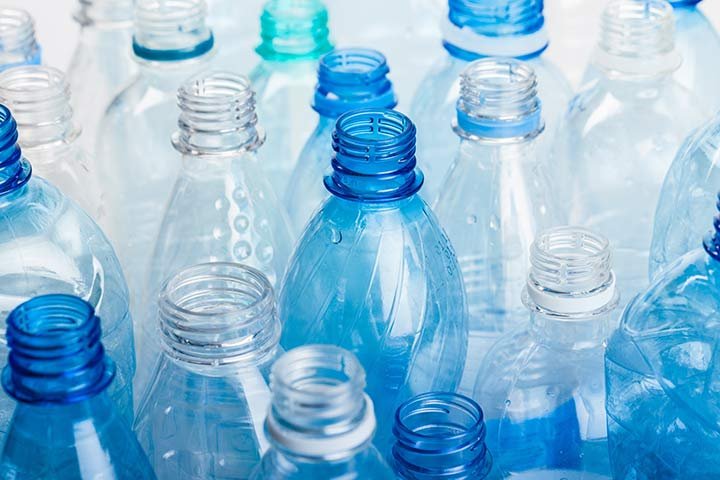Supplement companies push products that have not been clinically proven to be effective. Manufacturers market so-called wellbeing devices that almost border on the metaphysical. Self-proclaimed health gurus preach methods that lack scientific basis. Clearly, the Internet and social media networks are rife with “too-good-to-be-true” claims made mainly by charlatans.
After decades of continuous focused research and active work with individuals facing serious health challenges, I came to one conclusion: Despite all the misleading information out there, a few “health investments” do stand on solid scientific grounds and yield a very high return. I am referring to specific devices, supplements, and approaches that have been proven to make a difference when it comes to overall health.
In this ongoing series of articles I have titled “True Health Optimizers”, I will be discussing how they work and why they deserve your attention. And in full disclosure, I am affiliated with some of the featured brands given the high standards they abide by.
Water that Harms; Water that Heals
“I drink in excess of two and a half liters a day,” is a statement I often hear people and clients bragging about. Obviously, almost everyone nowadays is aware of how important it is to consume mineral water in proper quantities. However, very few ever wonder what lurks in their drinking water. There is the assumption that water bottling companies test their products for contaminants in order to ensure the highest standard of safety and purity. But in reality, not all companies adopt stringent procedures in this regard. And even if they did, plastic bottles in which the water is contained are going to contaminate the water with Bisphenol A (BPA). Some companies do use BPA-free plastic. However, there have been reports that other equally-harmful chemicals are used instead of BPA. A study of 450 BPA-free products found that almost all of them contained a variety of chemicals that act just like estrogen.1
What on Earth is BPA and why should we be worried?
Well, BPA is a hormone disruptor (xenoestrogen) that acts like estrogen in the body, triggering hormonal changes and encouraging the growth of breast and prostate cancers. When BPA and similar xenoestrogens get into our bloodstream, they attach to the estrogen receptors in both men and women. Not only do they mimic estrogen, but also they are much stronger than the estrogen your body produces naturally. And they block natural hormones - causing an imbalance that affects estrogen, testosterone (male hormone), and others.
A report by the National Institutes of Health's National Toxicology Program in the US found that BPA may alter brain development and behavior and increase the risk of prostate cancer in children, infants, and fetuses. BPA has been shown to play a role in several endocrine disorders, including female and male infertility, precocious puberty, hormone-dependent tumors such as breast and prostate cancer, and several metabolic disorders like polycystic ovary syndrome (PCOS), type II diabetes, and high blood pressure.2
Research links BPA and other bisphenols to:
• Weight gain
• Obesity
• Breast cancer
• Testicular cancer
• Prostate cancer
• Behavioral changes
• Heart disease
• Diabetes
• High blood pressure
• Asthma
• Reduced lung function
• Lung cancer
BPA is bad news - now what?
Now that I have your attention, let’s discuss sustainable solutions. And it starts by avoiding water that comes in plastic bottles. Acquiring a reliable and efficient water filter that could be easily installed in your kitchen is imperative. This is “really” the only way you will able to avoid BPA-laden water. The water you filter could be placed in glass bottles if you wish to take it to work or the gym. Over the years, I have tested and reviewed multiple brands of water filters. Some were good; others not so much. However, the most impressive I have come across so far is the HomePure Nova filtration system.
HomePure Nova has nine stages of filtration. It has received the Gold Seal of the Water Quality Association (WQA) - making it the first ultrafiltration water filter certified by the association for its capability to reduce pathogenic bacteria, viruses, and microbial cysts from water. The filter boasts the new 35+ UltraTech Filter Technology, which removes 99.9999% of bacteria and 99.99% of viruses from water, while Microban® antibacterial technology helps prevent the growth of bacteria, mold, and mildew - with no electricity required.
Another important aspect of the HomePure Nova filter is that it maintains the vital minerals found in water while removing all harmful contaminants. And this feature is not shared by other water filter technologies like reverse osmosis and ultraviolet (both are high maintenance, prone to recontamination, and reverse osmosis demineralizes the water.) Below is an infographic detailing each of the 9 stages of filtration that HomePure Nova offers:
Begin with the basics
Many continuously seek the latest advances/trends in the realm of health and fitness. And while it is commendable to be proactive in this regard, some tend to forget that covering the basics is the first and most important step. One cannot focus on how a certain protocol or supplement could extend lifespan while he or she consumes “toxic water” on daily basis! No amount of fancy treatments - regardless of how evidence-based they are - is going to optimize your health and performance unless you start with the lowest-hanging fruit: clean and pure mineral water!
How to Purchase the HomePure Nova Filter
HomePure Nova Filter could be delivered to various destinations around the world. You may click on any of the links below (email or WhatsApp chat) for a personalized buying experience.
If you found this article interesting, please "share" and "like". And feel free to leave your comments/questions - I would love to hear your opinion and answer your queries.
References:
1. Yang CZ, Yaniger SI, Jordan VC, Klein DJ, Bittner GD. “Most Plastic Products Release Estrogenic Chemicals: A Potential Health Problem That Can Be Solved.” Environmental Health Perspectives. 2011 Jul.
2. Konieczna, A., Rutkowska, A., Rachoń, D. "Health risk of exposure to Bisphenol A (BPA)." Rocz Panstw Zakl Hig. 2015; 66(1):5-11.



